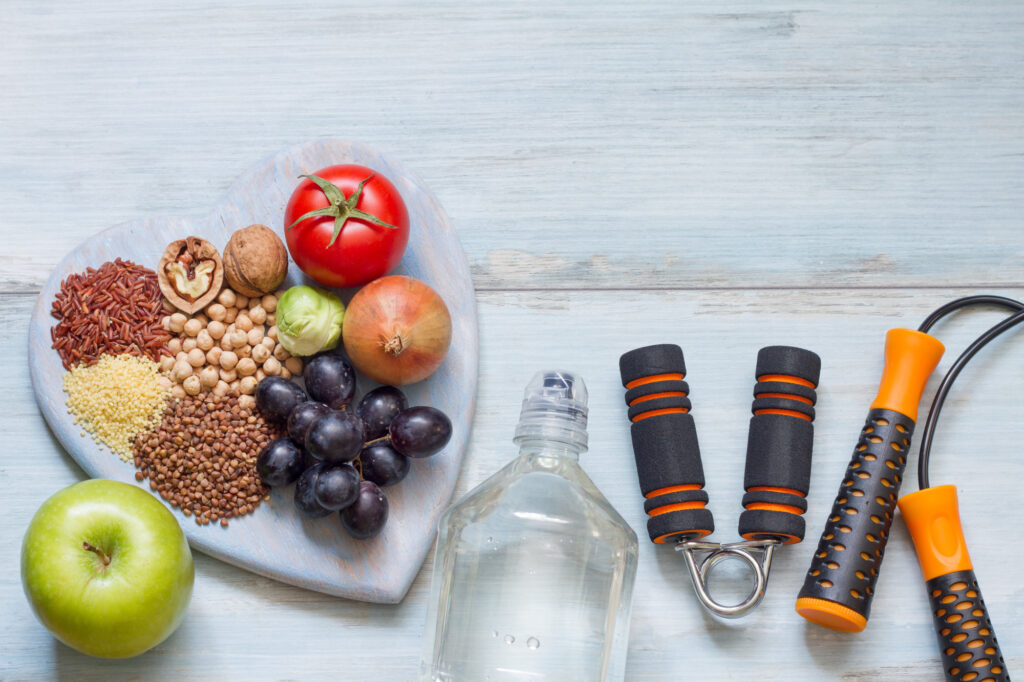
According to heart.org, heart disease is the number one killer in America, with stroke not far behind as the fifth cause of death for Americans.
It would make sense then that creating a lifestyle that promotes a stronger heart would be essential. Yet many people are not committed to maintaining a lifestyle for a healthy heart.
If you’re currently living with heart disease, or are worried about your heart-health, follow these steps below for a stronger heart.
1. Improve Your Diet
We’ve heard it all before, but now it’s time to commit to a heart-healthy lifestyle for a healthier heart. Diet is a big contributor to many American’s poor heart-health, so it would make sense that changing some of your eating habits could add positive benefits to a stronger, healthier heart.
Here are some foods to incorporate into your new heart-healthy lifestyle:
- Fish – Salmon is full of heart-healthy omega 3 fatty acids
- Leafy Greens – Spinach, broccoli, kale, and other leafy green vegetables provide iron, calcium, other minerals essential for a stronger heart
- Fruits – blueberries, strawberries, blackberries, and raspberries are all packed with antioxidants to fight free radicals
- Nuts and Seeds – almonds, walnuts, and various seeds provide healthy fats your body needs
By incorporating some of these foods into your diet slowly, you can commit to a heart-healthy diet that improves heart function and a stronger heart.
2. Incorporate Exercise into Your Routine
Exercise is essential to a heart-healthy lifestyle and a stronger heart. Exercise can help control your weight, help reduce stress and provide cardiovascular benefits to help your heart.
Here are some great exercises for a heart-healthy lifestyle:
- Get in the pool – swimming laps, water aerobics, and low resistance training in the pool are all great exercises for your heart
- Enjoy the neighborhood – get outside in the fresh air and walk around your neighborhood
- Resistance training – use some light resistance training to build muscle, stave off fat, and produce a healthier heart
- Flexibility – stretching, yoga, tai chi, and other forms of flexibility training promote an active lifestyle for a stronger heart
Build slowly and aim for 30 minutes three to five times each week. By incorporating exercise into your routine, you’ll be on your way to a more active, healthier you.
3. Take Time to Relax
Meditation for only 10 minutes a day, three times a week, has been scientifically proven to have dramatic results on the brain function, stress, improved mood, reduced blood pressure, and more.
Many free apps can help you slowly incorporate meditation into your daily routine. Consistent weekly practice at least three times a week yields the best results.
4. Quit Smoking
According to the renowned Cleveland Clinic, research suggests that one-fifth of all deaths from heart disease are a result of smoking. Not only that, but smokers have a 70% higher death rate of coronary artery disease.
We all know that smoking is bad for your heart and your lungs. While it can be difficult to quit, especially if you’re a life-long smoker, it’s imperative for a heart-healthy lifestyle.
There are many programs to help smoking cessation. Do your research and ask for help. It may just be the one choice that saves your life.
Smoking is linked to heart attacks, strokes, artery disease, and heart failure. Take the steps necessary to kick the habit for good.
5. Drink in Moderation
If you like to drink, drink wine. According to the Mayo Clinic, drinking red wine in moderation can be good for your heart. You don’t have to give up alcohol altogether, but if you need a drink, reach for the red wine.
Here are some of the benefits of drinking red wine in moderation:
- Reduce HDL cholesterol
- Reduces the formation of blood clots
- Helps prevent artery damage
- May help improve the layer of cells that line your blood vessels
So if you like a drink with dinner, make sure it’s the red stuff, and stay away from other alcohol. Drinking red wine in moderation can be supplemented for a healthy heart.
6. Limit Your Sweets
Many people who suffer from heart disease also are prone to suffer from diabetes. The best way to limit your chances of developing type II diabetes is to make sure you’re eating a healthy diet that limits sweets.
Stay away from the sugary stuff, and you’re heart will thank you. When we say sugar, we strictly mean the processed sugar found in processed foods—eating whole foods, like fruit, is fine in moderation.
Have your doctor keep tabs on your blood sugar levels, and if you have diabetes, make sure you are sticking to a diabetic diet that promotes a healthy heart.
7. Watch Out for Salt
According to heart.org, nine out of ten Americans consume too much salt. The majority of excess sodium comes from relying on processed foods.
Did you know that just by increasing your amount of whole foods in your diet, you can minimize your risk for symptoms like an enlarged heart, high blood pressure, kidney disease, and more?
Relying on a whole food diet with plenty of fruits, vegetables, grains, and healthy fats from nuts and seeds will significantly decrease your sodium intake.
Start by replacing some of your favorite processed meals with a similar whole food substitute. You’ll be surprised by the changes you feel.
8. Make Water Your Drink of Choice
How much water do you drink each day? If your first response is,”I don’t drink water,” maybe you should.
According to one study, 75% of Americans are chronically dehydrated. Water is essential for daily functions. It helps with removing waste, restoring cells and tissues, and keeping our body alert.
If you aren’t drinking water, you can improve your heart health by slowly adding water into your everyday routine. Reach for the clear stuff and feel the heart-healthy effects.
Eight Steps to a Stronger Heart
If your goal is to have a stronger heart for yourself, your children, or your grandchildren, these eight steps will produce great results. Used in combination, you can have dramatic results in how you feel.
For more information on how to improve your emotional, physical, and financial health, make sure to check out our blog for the latest and greatest.


